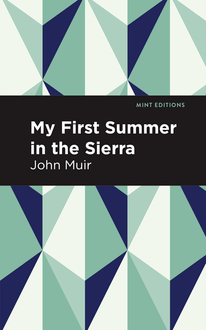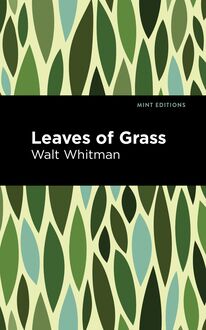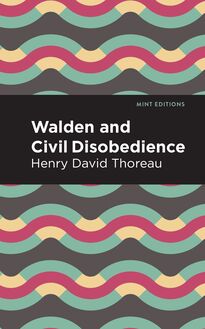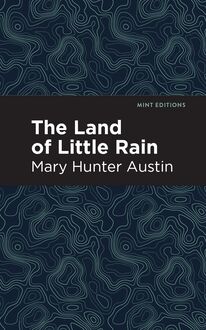-
 Univers
Univers
-
 Ebooks
Ebooks
-
 Livres audio
Livres audio
-
 Presse
Presse
-
 Podcasts
Podcasts
-
 BD
BD
-
 Documents
Documents
-
- Cours
- Révisions
- Ressources pédagogiques
- Sciences de l’éducation
- Manuels scolaires
- Langues
- Travaux de classe
- Annales de BEP
- Etudes supérieures
- Maternelle et primaire
- Fiches de lecture
- Orientation scolaire
- Méthodologie
- Corrigés de devoir
- Annales d’examens et concours
- Annales du bac
- Annales du brevet
- Rapports de stage
La lecture à portée de main
Vous pourrez modifier la taille du texte de cet ouvrage
Découvre YouScribe en t'inscrivant gratuitement
Je m'inscrisDécouvre YouScribe en t'inscrivant gratuitement
Je m'inscrisEn savoir plus
Vous pourrez modifier la taille du texte de cet ouvrage
En savoir plus

Description
A Lady's Life in the Rocky Mountains (1879) is a work of travel literature by British explorer Isabella Bird. Adventurous from a young age, Bird gained a reputation as a writer and photographer interested in nature and the stories and cultures of people around the world. A bestselling author and the first woman inducted into the Royal Geographical Society, Bird is recognized today as a pioneering woman whose contributions to travel writing, exploration, and philanthropy are immeasurable. In 1872—after a year of sailing from Britain to Australia and Hawaii—Isabella Bird journeyed by boat to San Francisco before making her way over land through California and Wyoming to the Colorado Territory. There, she befriended an outdoorsman named Rocky Mountain Jim, who guided her throughout the vast wilderness of Colorado and accompanied her during a journey of over 800 miles. Traveling on foot and on horseback—Bird was an experienced and skillful rider—the two formed a curious but formidable pair, eventually reaching the 14,259 foot (4346 m) summit of Longs Peak, making Bird one of the first women to accomplish the feat. A Lady's Life in the Rocky Mountains, Bird’s most iconic work, was a bestseller upon publication, and has since inspired generations of readers. With a beautifully designed cover and professionally typeset manuscript, this edition of Isabella Bird’s A Lady’s Life in the Rocky Mountains is a classic of American literature and travel writing reimagined for modern readers.
Sujets
Informations
| Publié par | Mint Editions |
| Date de parution | 07 mai 2021 |
| Nombre de lectures | 1 |
| EAN13 | 9781513274300 |
| Langue | English |
| Poids de l'ouvrage | 1 Mo |
Informations légales : prix de location à la page 0,0500€. Cette information est donnée uniquement à titre indicatif conformément à la législation en vigueur.
Extrait
A Lady’s Life in the Rocky Mountains
Isabella L. Bird
A Lady’s Life in the Rocky Mountains was first published in 1879.
This edition published by Mint Editions 2020.
ISBN 9781513269306 | E-ISBN 9781513274300
Published by Mint Editions®
minteditionbooks.com
Publishing Director: Jennifer Newens
Design & Production: Rachel Lopez Metzger
Project Manager: Micaela Clark
Typesetting: Westchester Publishing Services
C ONTENTS L ETTER I. Lake Tahoe—Morning in San Francisco—Dust—A Pacific mail-train—Digger Indians—Cape Horn—A mountain hotel—A pioneer—A Truckee livery stable—A mountain stream—Finding a bear—Tahoe. L ETTER II. A lady’s “get-up”—Grizzly bears—The “Gems of the Sierras”—A tragic tale—A carnival of color. L ETTER III. A Temple of Morpheus—Utah—A “God-forgotten” town—A distressed couple—Dog villages—A temperance colony—A Colorado inn—The bug pest—Fort Collins. L ETTER IV. A plague of flies—A melancholy charioteer—The Foot Hills—A mountain boarding-house—A dull life—“Being agreeable”—Climate of Colorado—Soroche and snakes. L ETTER V. A dateless day—“Those hands of yours”—A Puritan—Persevering shiftlessness—The house-mother—Family worship—A grim Sunday—A “thick-skulled Englishman”—A morning call—Another atmosphere—The Great Lone Land—“Ill found”—A log camp—Bad footing for horses—Accidents—Disappointment. L ETTER VI. A bronco mare—An accident—Wonderland—A sad story—The children of the Territories—Hard greed—Halcyon hours—Smartness—Old-fashioned prejudices—The Chicago colony—Good luck—Three notes of admiration—A good horse—The St. Vrain—The Rocky Mountains at last—“Mountain Jim”—A death hug—Estes Park. L ETTER VII. Personality of Long’s Peak—“Mountain Jim”—Lake of the Lilies—A silent forest—The camping ground—“Ring”—A lady’s bower—Dawn and sunrise—A glorious view—Links of diamonds—The ascent of the Peak—The “Dog’s Lift”—Suffering from thirst—The descent—The bivouac. L ETTER VIII. Estes Park—Big game—“Parks” in Colorado—Magnificent scenery—Flowers and pines—An awful road—Our log cabin—Griffith Evans—A miniature world—Our topics—A night alarm—A skunk—Morning glories—Daily routine—The panic—“Wait for the wagon”—A musical evening. L ETTER IX. “Please Ma’ams”—A desperado—A cattle hunt—The muster—A mad cow—A snowstorm—Snowed up—Birdie—The Plains—A prairie schooner—Denver—A find—Plum Creek—“Being agreeable”—Snowbound—The grey mare. L ETTER X. A white world—Bad traveling—A millionaire’s home—Pleasant Park—Perry’s Park—Stock-raising—A cattle king—The Arkansas Divide—Birdie’s sagacity—Luxury—Monument Park—Deference to prejudice—A death scene—The Manitou—A loose shoe—The Ute Pass—Bergens Park—A settler’s home—Hayden’s Divide—Sharp criticism—Speaking the truth. L ETTER XI. Tarryall Creek—The Red Range—Excelsior—Importunate pedlars—Snow and heat—A bison calf—Deep drifts—South Park—The Great Divide—Comanche Bill—Difficulties—Hall’s Gulch—A Lord Dundreary—Ridiculous fears. L ETTER XII. Deer Valley—Lynch law—Vigilance committees—The silver spruce—Taste and abstinence—The whisky fiend—Smartness—Turkey Creek Canyon—The Indian problem—Public rascality—Friendly meetings—The way to the Golden City—A rising settlement—Clear Creek Canyon—Staging—Swearing—A mountain town. L ETTER XIII. The blight of mining—Green Lake—Golden City—Benighted—Vertigo—Boulder Canyon—Financial straits—A hard ride—The last cent—A bachelor’s home—“Mountain Jim”—A surprise—A night arrival—Making the best of it—Scanty fare. L ETTER XIV. A dismal ride—A desperado’s tale—“Lost! Lost! Lost!”—Winter glories—Solitude—Hard times—Intense cold—A pack of wolves—The beaver dams—Ghastly scenes—Venison steaks—Our evenings. L ETTER XV. A whisky slave—The pleasures of monotony—The mountain lion—“Another mouth to feed”—A tiresome boy—An outcast—Thanksgiving Day—The newcomer—A literary humbug—Milking a dry cow—Trout-fishing—A snow-storm—A desperado’s den. L ETTER XVI. A harmonious home—Intense cold—A purple sun—A grim jest—A perilous ride—Frozen eyelids—Longmount—The pathless prairie—Hardships of emigrant life—A trapper’s advice—The Little Thompson—Evans and “Jim.” L ETTER XVII. Woman’s mission—The last morning—Crossing the St. Vrain—Miller—The St. Vrain again—Crossing the prairie—“Jim’s” dream—“Keeping strangers”—The inn kitchen—A reputed child-eater—Notoriety—A quiet dance—“Jim’s” resolve—The frost-fall—An unfortunate introduction.
Letter I
L AKE T AHOE —M ORNING IN S AN F RANCISCO —D UST —A P ACIFIC MAIL - TRAIN —D IGGER I NDIANS —C APE H ORN —A MOUNTAIN HOTEL —A PIONEER —A T RUCKEE LIVERY STABLE —A MOUNTAIN STREAM —F INDING A BEAR —T AHOE .
L AKE T AHOE , September 2
I have found a dream of beauty at which one might look all one’s life and sigh. Not lovable, like the Sandwich Islands, but beautiful in its own way! A strictly North American beauty—snow-splotched mountains, huge pines, red-woods, sugar pines, silver spruce; a crystalline atmosphere, waves of the richest color; and a pine-hung lake which mirrors all beauty on its surface. Lake Tahoe is before me, a sheet of water twenty-two miles long by ten broad, and in some places 1,700 feet deep. It lies at a height of 6,000 feet, and the snow-crowned summits which wall it in are from 8,000 to 11,000 feet in altitude. The air is keen and elastic. There is no sound but the distant and slightly musical ring of the lumberer’s axe.
It is a weariness to go back, even in thought, to the clang of San Francisco, which I left in its cold morning fog early yesterday, driving to the Oakland ferry through streets with side-walks heaped with thousands of cantaloupe and water-melons, tomatoes, cucumbers, squashes, pears, grapes, peaches, apricots—all of startling size as compared with any I ever saw before. Other streets were piled with sacks of flour, left out all night, owing to the security from rain at this season. I pass hastily over the early part of the journey, the crossing the bay in a fog as chill as November, the number of “lunch baskets,” which gave the car the look of conveying a great picnic party, the last view of the Pacific, on which I had looked for nearly a year, the fierce sunshine and brilliant sky inland, the look of long R AINLESSNESS , which one may not call drought, the valleys with sides crimson with the poison oak, the dusty vineyards, with great purple clusters thick among the leaves, and between the vines great dusty melons lying on the dusty earth. From off the boundless harvest fields the grain was carried in June, and it is now stacked in sacks along the track, awaiting freightage. California is a “land flowing with milk and honey.” The barns are bursting with fullness. In the dusty orchards the apple and pear branches are supported, that they may not break down under the weight of fruit; melons, tomatoes, and squashes of gigantic size lie almost unheeded on the ground; fat cattle, gorged almost to repletion, shade themselves under the oaks; superb “red” horses shine, not with grooming, but with condition; and thriving farms everywhere show on what a solid basis the prosperity of the “Golden State” is founded. Very uninviting, however rich, was the blazing Sacramento Valley, and very repulsive the city of Sacramento, which, at a distance of 125 miles from the Pacific, has an elevation of only thirty feet. The mercury stood at 103 degrees in the shade, and the fine white dust was stifling.
In the late afternoon we began the ascent of the Sierras, whose sawlike points had been in sight for many miles. The dusty fertility was all left behind, the country became rocky and gravelly, and deeply scored by streams bearing the muddy wash of the mountain gold mines down to the muddier Sacramento. There were long broken ridges and deep ravines, the ridges becoming longer, the ravines deeper, the pines thicker and larger, as we ascended into a cool atmosphere of exquisite purity, and before 6 P.M . the last traces of cultivation and the last hardwood trees were left behind.
At Colfax, a station at a height of 2,400 feet, I got out and walked the length of the train. First came two great gaudy engines, the Grizzly Bear and the White Fox, with their respective tenders loaded with logs of wood, the engines with great, solitary, reflecting lamps in front above the cow guards, a quantity of polished brass-work, comfortable glass houses, and well-stuffed seats for the engine-drivers. The engines and tenders were succeeded by a baggage car, the latter loaded with bullion and valuable parcels, and in charge of two “express agents.” Each of these cars is forty-five feet long. Then came two cars loaded with peaches and grapes; then two “silver palace” cars, each sixty feet long; then a smoking car, at that time occupied mainly by Chinamen; and then five ordinary passenger cars, with platforms like all the others, making altogether a train about 700 feet in length.
The platforms of the four front cars were clustered over with Digger Indians, with their squaws, children, and gear. They are perfect savages, without any aptitude for even aboriginal civilization, and are altogether the most degraded of the ill-fated tribes which are dying out before the white races. They were all very diminutive, five feet one inch being, I should think, about the average height, with flat noses, wide mouths, and black hair, cut straight above the eyes and hanging lank and long at the back and sides. The squaws wore their hair thickly plastered with pitch, and a broad band of the same across their noses and cheeks. They carried their infants on their backs, strapped to boards. The clothing of both sexes was a ragged, dirty combination of coarse woolen cloth and hide, the moccasins being unornamented. They were all hideous and filthy, and swarming with vermin. The men carried short bows and arrows, one of them, who appeared to be the chief, having a lynx’s skin for a quiver. A few had fishing tackle, but the bystanders said that they lived almost entirely upon grasshoppers. They were a most impressive incongruity
-
 Univers
Univers
-
 Ebooks
Ebooks
-
 Livres audio
Livres audio
-
 Presse
Presse
-
 Podcasts
Podcasts
-
 BD
BD
-
 Documents
Documents
-
Jeunesse
-
Littérature
-
Ressources professionnelles
-
Santé et bien-être
-
Savoirs
-
Education
-
Loisirs et hobbies
-
Art, musique et cinéma
-
Actualité et débat de société
-
Jeunesse
-
Littérature
-
Ressources professionnelles
-
Santé et bien-être
-
Savoirs
-
Education
-
Loisirs et hobbies
-
Art, musique et cinéma
-
Actualité et débat de société
-
Actualités
-
Lifestyle
-
Presse jeunesse
-
Presse professionnelle
-
Pratique
-
Presse sportive
-
Presse internationale
-
Culture & Médias
-
Action et Aventures
-
Science-fiction et Fantasy
-
Société
-
Jeunesse
-
Littérature
-
Ressources professionnelles
-
Santé et bien-être
-
Savoirs
-
Education
-
Loisirs et hobbies
-
Art, musique et cinéma
-
Actualité et débat de société
- Cours
- Révisions
- Ressources pédagogiques
- Sciences de l’éducation
- Manuels scolaires
- Langues
- Travaux de classe
- Annales de BEP
- Etudes supérieures
- Maternelle et primaire
- Fiches de lecture
- Orientation scolaire
- Méthodologie
- Corrigés de devoir
- Annales d’examens et concours
- Annales du bac
- Annales du brevet
- Rapports de stage










